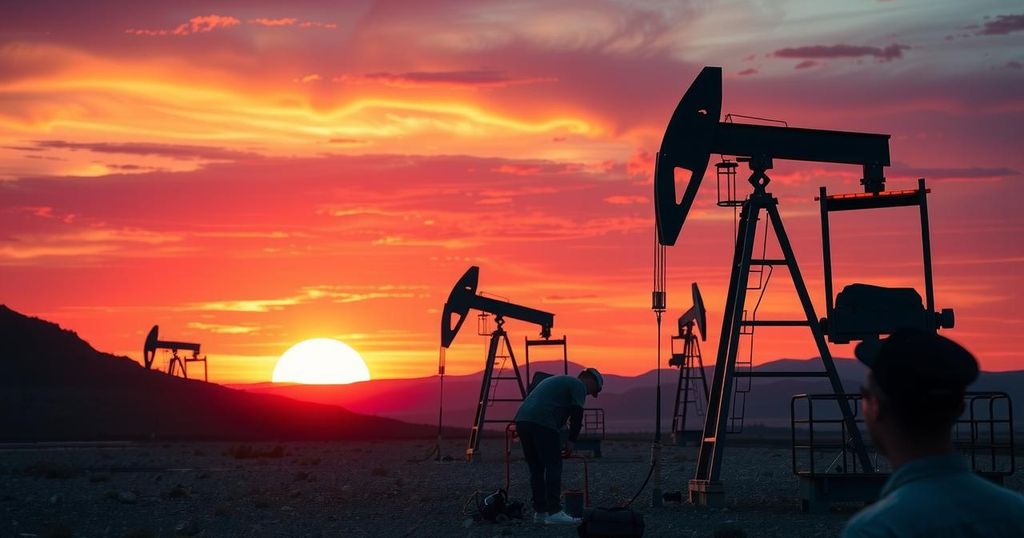Argentina’s Oil Boom: Economic Promise Amid Environmental Concerns

Argentina’s oil production has reached record levels, offering potential economic benefits amidst an ongoing crisis. The expansion, particularly in the Neuquén Basin, faces critics who highlight environmental and social concerns. Despite a positive energy trade balance, issues of resource distribution and local impacts persist, raising questions about sustainability and equity as the country navigates its energy future.
Argentina is undergoing an oil boom, with continuous reports of record-breaking oil production. This development is projected to position Argentina as a significant global supplier of oil, providing a glimmer of hope for an economy that has struggled for over a decade. However, these advancements have raised numerous concerns about economic benefits distribution and the ecological and social repercussions of the energetic expansion.
The Neuquén Basin, situated in the southwest of Argentina, has emerged as the focal point of oil development. Critics from academia and environmental groups describe this expansion as excessively aggressive. Researcher Agustín González noted that exploration in agricultural regions began a decade ago, with an influx of drilling activities aimed at further exploiting Argentina’s rich shale resources.
González emphasized the severe impact of hydraulic fracturing, or fracking, stating that it uses large quantities of water and various chemicals that jeopardize nearby agricultural and community land. He advocated for the protection of local food production and natural resources through a robust regulatory framework to prevent ecological damage linked to fracking.
The current government, led by President Javier Milei, has downgraded the significance of the Ministry of Environment and dismissed climate agenda priorities. This shift, coupled with funding cuts to renewable energy initiatives, raises concerns about the future of Argentina’s commitment to sustainable energy development.
Despite these challenges, Argentina achieved a positive energy trade balance in 2024, marking a significant turnaround after years of deficits. This improvement largely stems from the burgeoning fracking industry in the Vaca Muerta region, which is now responsible for over half of the nation’s oil and gas outputs. Key projections suggest that Argentina might reach $30 billion in annual oil exports by 2030.
However, the rise in production has paradoxically led to a decrease in domestic fuel consumption, as public spending cuts have reduced demand for gasoline and diesel. Observers note that while investments in oil have surged in Neuquén, social conditions remain troublingly unchanged, with poverty levels in the province mirroring the national average. Critics warn that the exploitation of oil wealth is not leading to improved quality of life for local populations, highlighting once again the dual-edged nature of the oil boom.
In summary, Argentina’s ongoing oil boom presents both opportunities and challenges. While the nation appears poised for significant economic advancement through increased oil production and exports, serious concerns persist regarding environmental impacts, social equity, and the adequacy of governance. The juxtaposition of growing exports against stagnant local welfare underscores the pressing need for a balanced approach to resource management that considers both ecological sustainability and community well-being.
Original Source: www.globalissues.org








